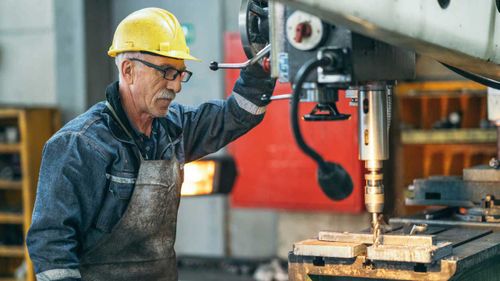Share this @internewscast.com
Recent studies have uncovered a concerning pattern in Australian workplaces, where a notable portion of employers seem to marginalize both older and younger employees due to age-related prejudices.
This alteration indicates that numerous employers might be disregarding seasoned professionals in a market experiencing talent deficits, according to a statement from the commission.

Even though more than half of employers (55 percent) are struggling with positions that are difficult to fill, merely 56 percent are considerably receptive to hiring people aged 50-64.
This figure plummets to just 28 per cent for those 65 and over, with a striking 18 per cent outright refusing to consider this age group.Â
The situation is equally bleak for the younger generation, with only 41 per cent of employers largely open to recruiting jobseekers aged 15 to 24.
“Our research found some workplaces are hesitant to employ workers over the age of 50, before they are even close to retirement age, or under 24 â including Gen Z’s digital natives,” Sarah McCann-Bartlett, CEO of the Australian HR Institute, said.Â
“One in 5 HR professionals say their recruitment practices negatively impact older workers, and 23 per cent say the same about younger workers.”
The report, Older and Younger Workers: What Do Employers Think?, is AHRI and the Commission’s fifth national survey of employers and HR professionals.Â
It includes responses from almost 150 HR professionals in the private, public, and non-profit sector, and provides a snapshot of how older and younger workers are perceived, supported and included in Australian workplaces.
Robert Fitzgerald, Age Discrimination Commissioner at the Australian Human Rights Commission, said the findings highlight the need for sustained action against ageism.
“Older and younger workers can be a real advantage for businesses,” he said.
“Age-diverse teams bring different life experiences to the table and are better at solving problems.
“Employers need to support inclusive workplaces, where competency isn’t assessed against age or career stage. Providing equal opportunity for people of all ages to remain engaged in meaningful work can enhance productivity, while also helping close skills gaps,” he said.
Report reveals age-based assumptions about key skills
While older workers rated higher for their loyalty (74 per cent), reliability (64 per cent), and ability to cope with stress (62 per cent), compared to younger workers they were rated lower for their ability to use technology and their career ambition, the report found.Â
Only 1 per cent of respondents said older workers had better technology skills, and just 7 per cent thought they had higher energy levels.
Younger workers, meanwhile, were rated comparatively lower for reliability (1 per cent), loyalty (2 per cent), and ability to cope with stress (2 per cent), despite being rated higher for energy and technological fluency.
Nearly 60 per cent of respondents said the departure of older workers has led to a loss of key skills, with only 13 per cent saying their organisation consistently captures that knowledge.
“What we’re seeing is bias at both ends of the age range,” Fitzgerald said.Â
“Sadly this undermines diversity of thought and productivity.”
The findings come after the federal government this month flagged increasing productivity as a key priority for its second term.
Prime Minister Anthony Albanese will hold a productivity round table in August, and has said he wants it to build the “broadest possible base” for further economic reform.













